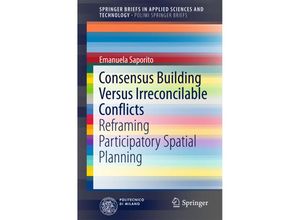This book aims to identify ways of overcoming the limitations of the communicative tradition in
understanding participatory spatial planning. Three conceptual models that offer different
perspectives on public and civic participation in complex urban planning processes are
presented and reviewed: the consensual model which conceives of planning as a collective
decision-making practice geared toward consensus building and conflict resolution the
conflictual model which views planning as a social mobilization practice addressed at
empowerment of marginalized groups and the trading zone model which reframes collaborative
planning as a coordination activity with respect to practical proposals in the presence of
unstable and conflicting rationalities and values. The controversial story of the Integrated
Intervention Program PII Isola Lunetta in Milan is examined through the interpretative lenses
of these models with detailed interpretation of how each model performs in the field. The book
concludes by offering critical reflections on the reframing of participatory spatial planning
highlighting the value of trading zones trading languages and boundary objects as tools for
understanding and addressing collaborative practices in complex and conflictual urban planning
processes.

